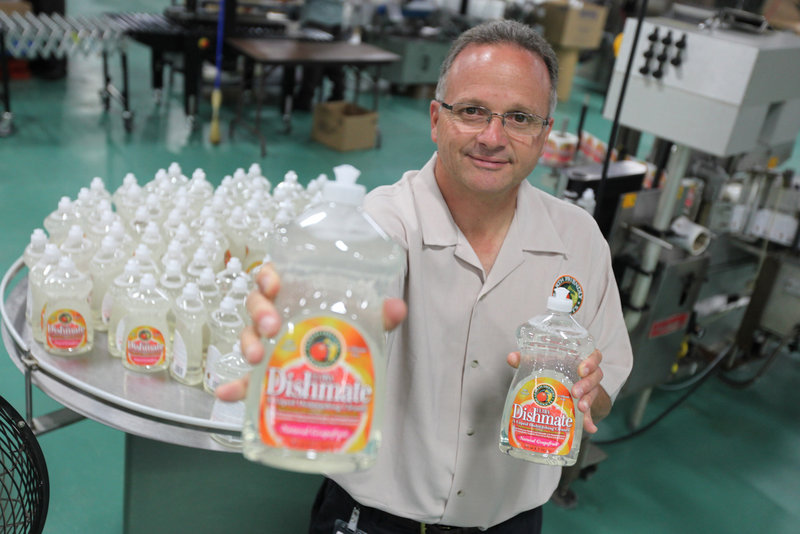CHICAGO — Dawn detergent’s bird-cleaning monopoly has its competitors in a lather.
As images of oil-soaked birds, victims of BP’s Deepwater Horizon disaster in the Gulf of Mexico, getting scrubbed in tubs capture the world’s attention, dozens of companies are clamoring to get their products on some feathers. But for 30 years, the nation’s bird rescue organizations have remained faithful to Dawn.
Addison, Ill.-based Earth Friendly Products, one of the largest U.S. makers of green cleaning products, recently called Dawn a “chemical cocktail,” claiming consumer products giant Procter & Gamble has a “grand strategic plan to lock up the bird cleaning business in the U.S. and abroad.”
Van Vlahakis, Earth Friendly’s chief executive, notes that P&G donates hundreds of thousands of dollars a year to California-based International Bird Rescue and Research Center, which is the largest organization of its kind, and other wildlife rescue organizations.
Last year, P&G’s $250,000 donation amounted to roughly a quarter of the rescue center’s operating budget, the organization and P&G confirmed. P&G also donates to Tri-State Bird Rescue & Research, which is leading bird-washing operations in the Gulf in partnership with the International Bird Rescue and Research Center and the U.S. Fish & Wildlife Service.
NATURAL PRODUCT OVERLOOKED
“Safe alternatives – environmentally sound, effective dishwashing liquids that only use natural products – are available but are not being used,” Vlahakis said. His company was rebuffed by BP and nearly a dozen rescue organizations in its offer to donate a truckload of Dishmate detergent, which is enough to clean 100,000 birds.
“Our ingredients include cleaning agents you can actually pronounce, such as coconut oil-derived surfactants, almond oil and cherry oil. And we don’t do animal testing, ever,” he said.
Dawn contains propylene glycol, which, according to the federal Environmental Protection Agency, can adversely affect marine life when released in large quantities in water by consuming oxygen that aquatic organisms need to live. It also contains sodium lauryl sulfate, a chemical that has stirred controversy because it can irritate animals’ skin.
P&G, based in Cincinnati, and bird rescue organizations maintain that Dawn is safe for birds and humans. Tri-State says it uses Dawn because it works the best and is easy to get in large quantities at a moment’s notice. P&G says it donates the product because it is the right thing to do.
P&G REAPING BENEFITS
P&G doesn’t advertise its bird-washing role. But Dawn’s website features photos of baby birds overlaid with bottles of Dawn detergent and boasts that Dawn is “saving wildlife.” The site also links to Dawn’s “Everyday Wildlife Champions” Facebook page that features photos of birds being released back into the wild after being cleaned with Dawn. The page has more than 270,000 fans.
Jay Holcomb, executive director of the International Bird Rescue and Research Center, said P&G has reaped untold benefits from news reports spotlighting Dawn. “Just the product placement that they’ve gotten, and not intentionally, is probably worth millions of dollars, and we know that, and we know Procter & Gamble knows that,” he said.
It wasn’t always so. When Holcomb’s organization first learned, by trial and error, that the survival rate of birds cleaned with Dawn was superior to birds washed with other products, P&G didn’t even want to be involved.
“They ignored us for many years. I mean completely,” Holcomb said. He said company officials worried it would appear as if they were using tragedy to promote Dawn if they donated dishwashing liquid. But just before the Exxon Valdez oil spill in 1989, Holcomb said, P&G agreed to start quietly donating the product.
Since then, Dawn has remained the cleaner of choice by rescue organizations, although there is no contract.
NO BETTER ALTERNATIVE FOUND
The rescue groups point to various studies conducted by Tri-State that have tested more than 200 products and failed to come up with a better alternative, said Erica Miller, a veterinarian who heads the research department at Tri-State Bird Rescue, based in Delaware.
“Both our subjective and objective laboratory tests show that (Dawn) is the best at removing the oil from the feathers without leaving a residue or causing any harm to the birds or to the people doing the washing,” Miller said.
One “blind” study published by Miller and members of DuPont’s research and development division in 2000 tested 86 products by applying them to oiled feathers at various concentrations. Dawn products fared the bestat removing oil.
Such tests are time-consuming and costly, but Miller said they continue to test new products. The most recent large-scale testing occurred in 2005.
With the large number of samples Tri-State has received from companies and through other bird organizations due to the BP spill, Rebecca Elzey, director of development for Tri-State, said the rescue organization is planning more trials for “the near future.”
“The volume of companies connected to bird cleaning have gone through the roof,” said Nancy Severance, director of marketing communications for the National Audubon Society.
Copy the Story Link
Send questions/comments to the editors.



Success. Please wait for the page to reload. If the page does not reload within 5 seconds, please refresh the page.
Enter your email and password to access comments.
Hi, to comment on stories you must . This profile is in addition to your subscription and website login.
Already have a commenting profile? .
Invalid username/password.
Please check your email to confirm and complete your registration.
Only subscribers are eligible to post comments. Please subscribe or login first for digital access. Here’s why.
Use the form below to reset your password. When you've submitted your account email, we will send an email with a reset code.